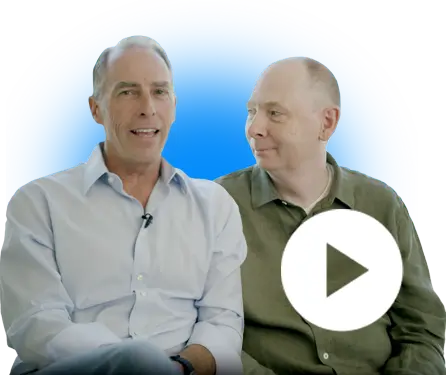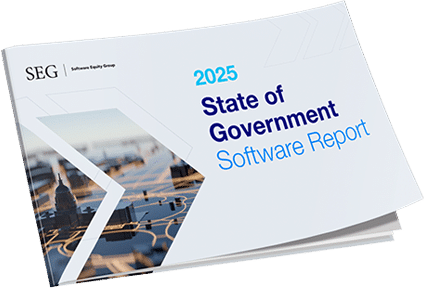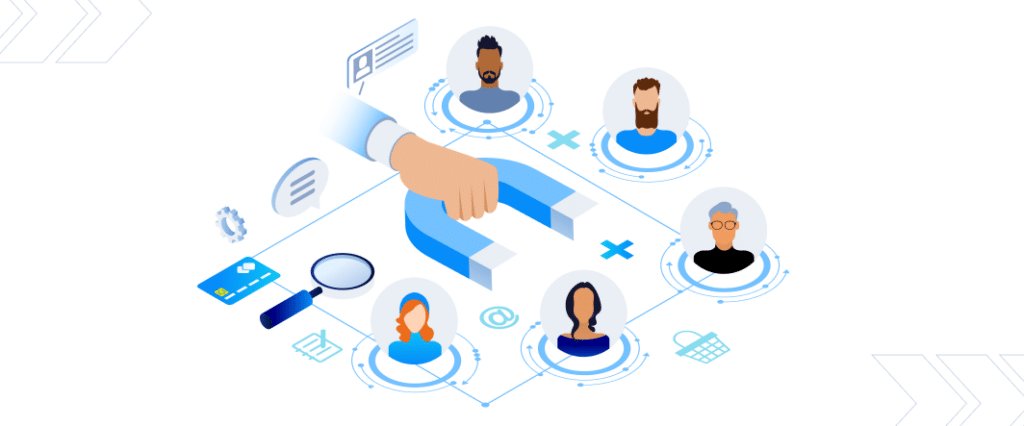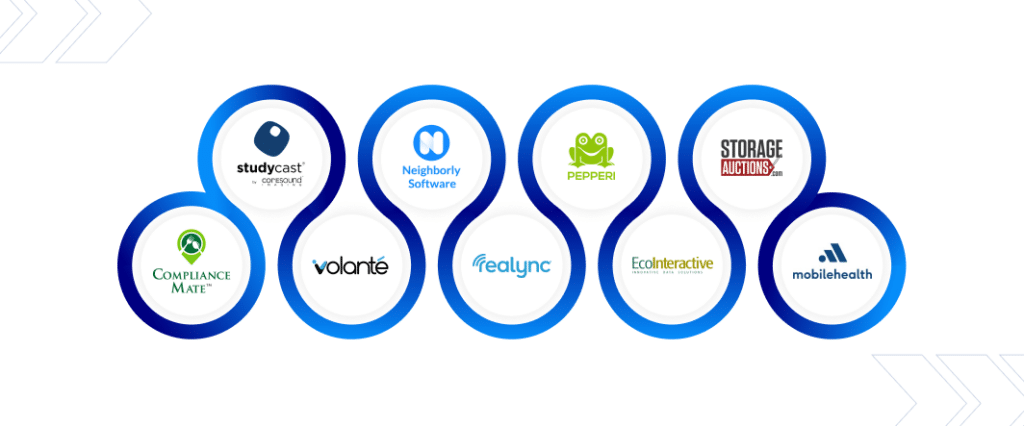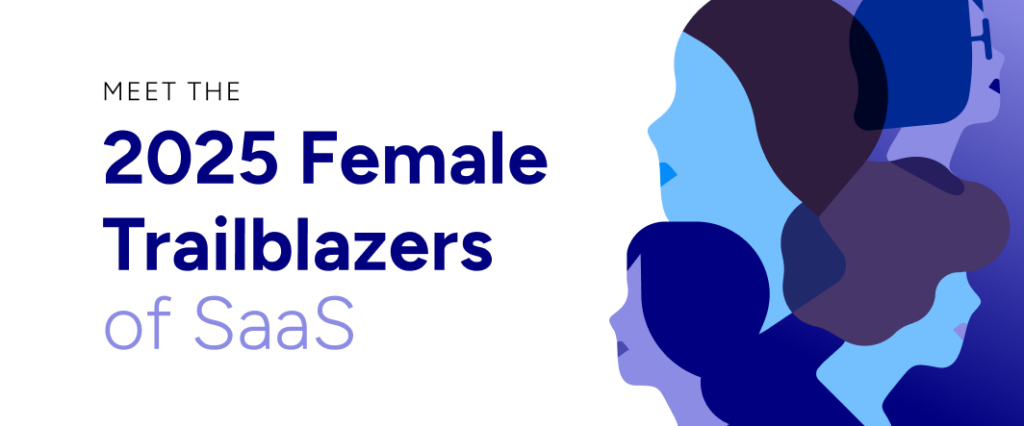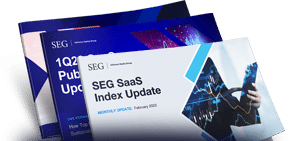Celebrating 2025 SaaS Trailblazers: Insights from Women Leading the Industry
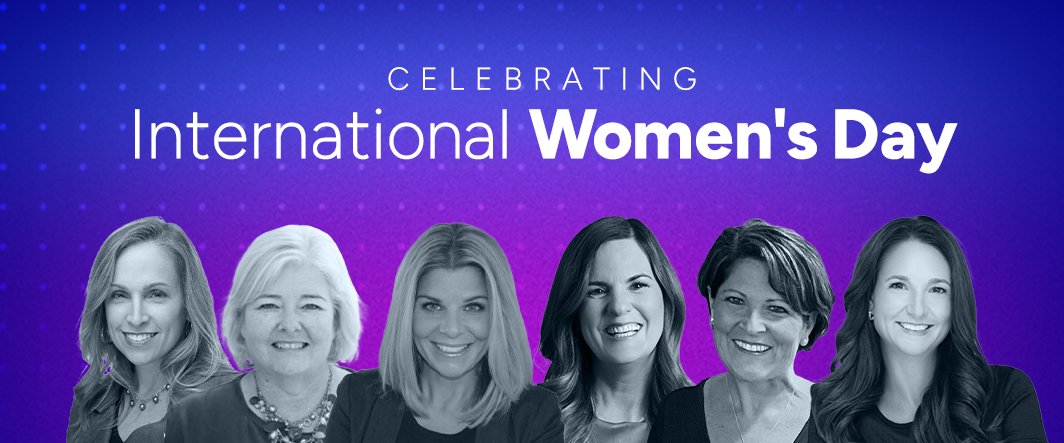
Women continue to be the minority in technology fields, with a report by The World Bank finding women holding a third of tech jobs in the U.S. as of the end of 2023.
That is a significant improvement from the early 2000s, when women made up just 9%.
As you can imagine, fewer women in leadership positions mean fewer female role models and mentors — making it that much harder for women entering the field.
But it’s been shown that women-led companies yield better return on investment, generating 78 cents for every dollar of funding, compared with male-founded startups (31 cents), according to Boston Consulting Group and MassChallenge.
So, in celebration of International Women’s Day on March 8, we reached out to six of our 2025 trailblazers. These women’s experiences, insights and valuable advice provide important takeaways for all leaders making their way in the SaaS industry today.
Here’s what they shared:
What significant achievements or milestones have you reached in your career?
For some, success has meant taking bold leaps at unexpected times.
“Starting my own business at 59 was a huge achievement,” said Carol Valentic, CEO of Atom Advantage. “I have always had an entrepreneurial spirit and decided there is never a ‘perfect time.’”
Others built and scaled startups from the ground up. “I helped grow a startup from $0 to over $10 million with just Series A financing,” said Suellen McFarling, COO for Leonardo247. “I have helped many early-stage startups scale and grow revenue resulting in an acquisition by a larger conglomerate.”
Early on, Mary Delaney, CEO of Karbon, helped launch a conference-calling company that became the largest in its space while also revitalizing a textile town. Her first SaaS leadership role came when she transformed a small France-based ATS into a global cloud provider, growing it by 10x in three years.
“One of my proudest achievements was leading the growth of a background screening company, evolving it into a tech-enabled SaaS firm,” Delaney said. “Before AI was mainstream, we embedded machine learning and RPA to enhance efficiency and user experience. The result? 50%+ annual growth for four consecutive years, positioning the company among the top five in the industry.”
For Heather Combs, CEO of Ripple Operations, leading and scaling high-growth SaaS companies has been rewarding. “But one of my proudest milestones is stepping into the role of CEO at Ripple Operations. Bringing together four companies into one cohesive brand with a unified vision has been both a challenge and an incredible opportunity. We’ve not only built a category around ‘Crew Success’ in the maritime industry, but we’re also delivering real impact for the people who keep the world moving — crew members on ferries and cruises.”
Are there any initiatives or projects you’re currently passionate about?
Valentic is focused on making healthcare more efficient. “With people resources stretched thin, I get so excited to reduce the admin work that our health providers are faced with daily.”
Heather Preu, CEO of Intellect, comes from a three-generation Navy family; her father, husband and son have all served. That fuels her hiring. “I am passionate about hiring from the military community,” she said, “helping those who have served as they transition from military life to the civilian workforce.”
Gina Armada, CEO of MHC, is excited about leveraging AI for business optimization. “AI-powered personal productivity assistants are phenomenal, and yet we need a similar concept applied to the more advanced operational work required to run an organization and engage with key stakeholders,” she said. “I am passionate about our current work designed to leverage AI to reduce human touchpoints by automating more actions and offering next best action insights to enable business users to make better and faster decisions.”
Delaney is championing leadership development through Karbon’s Mentoring and Emerging Leaders programs. “I was fortunate early in my career to have two mentors who coached and challenged me to grow beyond what I had ever envisioned. I also credit a brilliant and fierce female leader I met in 2019 for profoundly shaping my career trajectory. These experiences reinforced my belief that mentorship is essential, especially in a remote work environment where making a meaningful impact requires conscious effort. … Similarly, I love the time I spend with participants in our Emerging Leaders Program. This 12-month initiative is designed for non-leaders who aspire to future leadership roles.”
What trends in SaaS excite you the most?
Not surprisingly, AI is front of mind for many of our SaaS trailblazers. McFarling is excited about AI’s potential to transform customer experience.
“AI is moving at lightning speed, and it’s revolutionizing everything — from how we serve customers to how we make data-driven decisions.”
Armada believes AI will be a game-changer in operational efficiency. “AI-powered automation enables hyper-personalization and personal productivity at a scale in SaaS we have never seen before. As a hybrid convergence of people + technology, AI is distinctly different from what people or technology can do alone and the potential for hyper-scaled innovation is very exciting.”
Combs sees AI reshaping the workforce. “In our space, we’re looking at how AI can help maritime organizations better predict crew needs, personalize training, and optimize scheduling — ultimately improving both business outcomes and the lives of crew members.”
AI will be the most significant value creator for SaaS in her lifetime, Delaney says. She also named Vertical SaaS as an important trend. “Specializing in a specific industry allows VSaaS companies to deeply understand their customers and build highly impactful solutions tailored to their unique needs.”
Valentic is excited about modularization in SaaS, which is accelerating sales and implementations for her business.
Can you share a challenging situation you navigated successfully?
For Preu, the multiple facets of AI have been a welcome challenge as her team works to find ways to integrate AI into their solution. They are also working to use AI tools to expedite internal processes and development in areas like automation testing.
McFarling recalled successfully navigating a difficult leadership transition. “Replacing our founder-CEO with a more seasoned, professional CEO to support us through our hyper-growth phase and get us to our revenue goals has been extremely challenging,” she said. “Finding the right person to fill those shoes has taken months of collaborative effort with the executive team, our board of directors, and our investors.”
Delaney also spoke about the challenges of rapid growth; in 2024, Karbon grew its team by 73%. They focused on three key areas to manage the scaling and maintain the culture: hiring, onboarding and ownership.
“A key lesson I’ve learned is to hire as if you only have one hire to make all year — even when scaling quickly. Instead of lowering expectations, we raised them for many roles to ensure we brought in top talent that aligned with our culture and vision.” They granted employees equity and ensured they understood how they would contribute to the company’s success. They also recognized scaling leadership was just as critical, adding three C-level executives with experience scaling businesses.
“Even with 73% growth, our engagement score improved by 10%, demonstrating that intentional leadership and culture-building efforts can scale alongside the business,” she said.
Combs shared her experience managing the complexities of mergers. “Merging four companies into one is a challenge in itself, but one of the biggest hurdles has been aligning cultures, processes, and product roadmaps while maintaining forward momentum. There’s no playbook for this so we focused on clear, frequent communication and involving our teams in the process rather than just dictating change.”
How do you achieve work-life balance in a demanding industry?
Valentic has a simple rule: She doesn’t work on Saturdays. “It allows me to recharge differently as I am already preparing for the week ahead on Sunday.”
Time blocks have made a difference for Preu: “I have become much better about giving my personal commitments the same visibility and importance on my schedule as business meetings.”
McFarling emphasized the importance of a strong team:
“You have to surround yourself with A players who you can count on to not only do the work but ensure that every effort is supporting the company’s overall business goals and objectives,” she said. “If you don’t have the right people in the right seats, it has a snowball effect that negatively impacts your ability to scale and achieve your goals.”
With team members across multiple time zones, Delaney adjusts her availability to support them when it’s most effective. While she has more flexibility to do that today with grown kids, when her kids were young, she was more deliberate with her time. “I scheduled family time as immovably as work commitments, maintaining a single calendar that included both.” She is grateful for how work-life integration has evolved. “Today’s young parents can take more than six weeks of leave, work from home, and build careers while staying present for their families. The shift toward flexibility is not just beneficial — it’s essential.”
Combs relates. “As a CEO and a mom to five teenage daughters, I’ve learned to prioritize fiercely. I set clear boundaries when needed, but I also integrate work and life in ways that make sense for me. That means bringing my daughters into conversations about leadership and problem-solving, and letting my team know when I need to step away for family time. Surrounding myself with a strong team, both at work and at home, makes all the difference.”
Many years ago, Armada juggled a work schedule across seven time zones and three active toddlers, while maintaining a household. “A wise mentor advised me to think about work-life integration as opposed to a balancing act. Focusing on the integration of work and life responsibilities has helped me accept that certain days or even weeks will feel out of balance.”
She has carried that over to her role as a leader. “My personal experiences and work-life integration challenges as a working mother over the last 20 years have shaped my goal to create a culture of flexibility at MHC to attract and retain the best talent.”
What do you do for yourself out of work that helps you be a better leader at work?
A mix of movement, networking and self-care have helped these leaders perform better at work. McFarling finds peer groups to be helpful. “Hearing about other experiences at similar organizations and the lessons learned from their decisions is invaluable.”
Valentic says she talks with everyone – and she means everyone. “I find some of the best leadership nuggets from conversations with Uber drivers, bank tellers, servers, etc. Everyone has something to offer.”
Preu likes to stay on top of both technology and leadership in her reading “to constantly make me think about how we approach problems and where trends are going.”
Delaney also believes in continuous learning. “There is so much wisdom to gain from those who have gone before us, and I make it a point to schedule time for both reading and engaging in conversations with other leaders. These discussions challenge my thinking, spark new ideas, and help me stay ahead in a rapidly evolving industry.”
She also prioritizes taking care of herself. “We can’t pour into others if our own energy is depleted. I know that being outside, spending time with family and friends, and staying active are all key energizers for me. Prioritizing these not only keeps me balanced but also ensures I bring my best self to my team and my work.”
Armada loves being in the presence of her family and friends. “I spend so much time at work thinking about the future and acting in the present that simply ‘being present’ with loved ones is restorative and energizing to help me get recharged and ready for what’s next at work.”
Combs finds energy in movement — whether it’s a workout, a walk, or just an impromptu dance party in the kitchen with her daughters. “Staying active helps me clear my head and show up with more focus and resilience.”
What role has mentorship played in your career?
Mentorship has been a crucial driver of success for many of these leaders, shaping their careers and inspiring them to give back.
Delaney credits mentorship as one of the biggest influences in her journey. “I wholeheartedly believe that I am where I am today because of the mentor I found when I was 23 years old. I followed him across three companies for two decades, learning invaluable lessons along the way. Over the years, I’ve had four incredible mentors, and I continue to seek mentorship today — it’s a lifelong journey.” She also believes in paying it forward. She supports other CEOs, emerging leaders, and women in business.
Armada recalled how mentorship changed the trajectory of her career in unexpected ways. “Very early in my career, a key mentor encouraged me to learn everything I could about technology despite not having any formal education in the field,” she said. “I often wonder what path I would have taken without that encouragement.”
Combs sees mentorship as more than just career guidance — it’s about instilling confidence and creating opportunities:
“Mentorship isn’t just about advice — it’s about sponsorship, opening doors, and pushing people to take that next step with confidence. When done well, it is win-win for both people.”
Preu agreed. “I think having a good mentor is important as they can usually step back and give unbiased view on advice as you navigate; but being a good mentor means making sure you take time to be prepared, and being a good mentee means showing up with legitimate questions and preparation and not just looking for a short cut.”
What advice would you give your younger self?
If these leaders could go back in time, they’d tell themselves to just do it. “Go for it. Fear will always be there,” Valentic said simply.
Delaney reflected on the importance of self-advocacy. “Dream big, deliver, and ask for it.”
Earlier in her career, when she was Chief Revenue Officer, she had grown a company from $0 to $200 million. When the CEO was transitioning out, she said she should have asked for a clear path to the CEO role — but at the time, she didn’t fully realize her potential. “I had done the work, proven my ability, yet I didn’t advocate for myself in that moment. To the younger Mary (and to anyone with big aspirations): Believe in your capability. Step up. Own your ambition. No one will hand you the opportunity — you have to ask for it.”
For Combs, letting go of perfectionism is important. “I spent a lot of time early in my career trying to check all the boxes before I felt ‘ready’ for the next role or challenge. The truth is, you’ll never feel 100% ready — so step up, say yes, and figure it out as you go. Growth happens outside of your comfort zone. Say yes and dive in!”
Armada was inspired by her children with her answer. “In honor of my twin daughters, I will share twin pieces of advice to my younger self: 1. Pay attention to the doors that open in front of you, and 2. Be open to exploring experiences outside of your comfort zone – you never know what will bring you joy until you try it.”
“Don’t get lost in the ‘This has to get done today or the sky will fall’ mentality.” That’s McFarling’s advice to her younger self. “You can’t do anything great if you are doing everything.”
Preu wants to tell her younger self to not sweat the small stuff. “I think especially as women in tech we think everything needs to be perfect and we have to have every answer all the time. Sometimes you end up sacrificing speed and being good enough in pursuit of perfection. It’s ok to say I’m not 100% sure and want to double check or confirm the answer, but make sure you follow up and follow through. Also trust your instincts.”
How can SaaS companies foster more diversity in leadership?
Building more diverse leadership teams isn’t just the right thing to do — it’s essential for driving innovation and long-term success in SaaS. But diversity doesn’t happen by accident; it requires deliberate action, our leaders said.
“If you have eight people at the table who all think the same way, you’re missing out on creativity, perspective, and innovation,” Preu said. “Different backgrounds lead to better solutions. That’s why I actively seek out diverse perspectives in my leadership team —innovation thrives when people challenge each other and bring new ideas to the table.”
Combs agreed. “It starts with intention. Diversity in leadership doesn’t happen by accident — you have to build pathways for it. That means not only hiring with diversity in mind but actively developing talent within your organization.”
McFarling believes companies need to take a data-driven approach. “Creating leadership development programs and employee resource groups can help knock down the wall of fear that oftentimes deters a potential SaaS leader from taking the leap. Having a network for support will encourage those that are capable to step up and prove through data that they are more than capable of being in a leadership position.”
Delaney emphasized the importance of support in retaining a more diverse workforce. “Early in my leadership career, I noticed that we were losing talented women after they became mothers. While stepping away from work is the right choice for some, others left simply because they couldn’t see a way to make it work. That realization pushed me to invest more time in supporting women, offering open conversations about navigating work and motherhood, helping with childcare solutions, and providing flexible work arrangements, from part-time options to phased returns. Those efforts made a real impact.”
The push for diversity should start long before hiring decisions are made, Armada said. “As SaaS leaders, we can start by continuing to promote girls in STEM to develop the next generation of technologists,” she said. “I am so impressed by the high school girls’ robotics team we support at MHC and how much they accomplish as they develop STEM and leadership skills as teenagers. For the current workforce, SaaS companies can foster more diversity in leadership roles by prioritizing flexible work arrangements, mentoring programs, leadership development training, and a leadership commitment to share more real-life stories and lessons learned to help the next generation of leaders excel.”
“Thanks to Software Equity Group for sharing the stories of women who found their passion in SaaS technology!” Armada added.
Thank you to the women who shared their experiences and to everyone who took the time to nominate them. Their leadership, insights, and impact continue to push the SaaS industry forward.
Nominate a Female Trailblazer in Tech
Join us as we celebrate International Women’s Day every March! We are always on the lookout for incredible female trailblazers in tech. If you know a woman who’s making waves in the industry, nominate her for next year’s submissions. Help us shine a spotlight on the inspiring women shaping the future of technology. Submit a nomination for next year’s recognition here.
